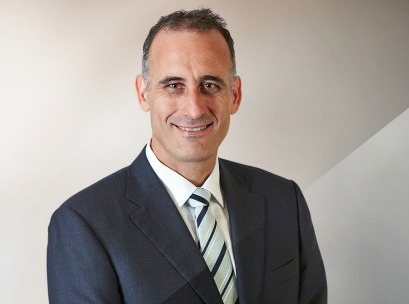
Wesfarmers chief executive Rob Scott has said that “all options are on the table” in relation to the struggling Bunnings UK and Ireland (BUKI) venture as the business prepares for a comprehensive review that will see the pace of its expansion wound-back.
Speaking to analysts, investors and media following an announcement to write-down $1.3 billion from the value of BUKI and Target, Scott did not rule out an exit from the UK market at the conclusion of a review process flagged for June.
“The review of BUKI announced today [will] assess all options, all options for improving returns to shareholders from this investment,” Scott said.
“Whether or not it [BUKI] will be meaningful enough to be a significant part of the Wesfarmers group in the future, that’s an open question.”
Scott said that Wesfarmers doesn’t view an exit as a preferred, or even likely, option given the current state of the business and what it would ultimately cost to cut-off the venture before engaging in a turnaround.
BUKI is expected to report an underlying loss before interest and tax of $165 million for the first half of fiscal 18, after trading conditions within the Homebase network worsened over the UK’s winter months.
Scott said that Wesfarmers is committed to around £1 billion ($1.7 billion) in outstanding lease obligations in the UK and is paying around £200 million ($354 million) in annual lease costs.
“It makes no sense at all to shareholders for us to just shut the door on this today, to shut the door on this today would be incredibly damaging for shareholders, particularly where the current level of losses are,” Scott said.
A business-wide review of BUKI has now been kicked off to identify the prevailing issues, during which time no new conversions of Homebase stores to the Bunnings format will be commenced, although five ongoing conversions are expected to be completed.
‘Confronting and disappointing’
Scott revealed that Wesfarmers first began to realise the extent of BUKI’s trading woes last November, just after he stepped into the top job at the conglomerate.
He said the performance of the overseas venture, which began in 2016 when Wesfarmers acquired the Homebase network for £340 million, was largely down to mismanagement by Wesfarmers.
“Two years ago this was a business that was profitable,” Scott said.
Consumers have not responded to changes within the Homebase network, such as the exiting of concessions and removal of key lines and services from segments such as Kitchen and Bathroom.
“Whilst I think conceptually the decision to exit various retail concessions [in Homebase] was probably the right decision over time, the pace at which we exited those concessions and the failure to present other range other products that resonated with Homebase customers really contributed to some of these losses,” Scott conceded.
“It’s confronting for all of us and it’s disappointing because the team has put in an enormous amount of effort and it’s not easy to come clean about what hasn’t gone right.”
Globaldata’s UK-based retail analyst Thomas Brereton said Wesfarmers’ decision to move Homebase to an every-day-low-price model so quickly had hurt the business.
“The rapid shift in product and pricing policy (moving from a promotional model to everyday low prices) has alienated regular consumers, compounded by the loss of local DIY expertise following the upheaval of management,” he said.
Scott’s transparency about the mistakes Wesfarmers has made comes after former CEO Richard Goyder rejected assertions that BUKI could turn into an earnings “black hole” last October.
But Scott believes the fact that Homebase was profitable two-years ago means that there is “capacity” for the network to return to black, and that the review and write-downs announced on Monday were designed to address the problem immediately rather than letting it carry on.
Bunnings format encouraging
Amid several comparisons with Woolworths’ failed home improvement venture Masters, Scott said that the 19 Bunnings stores already converted in the UK had shown encouraging results, with sales uplifts of between 20 – 50 per cent.
Although trading had moderated in the winter months, an area where Scott believes there is room for improvement, particularly with a raft of new hires coming onboard that have local expertise in the UK.
With the departure of longstanding Bunnings executive PJ Davis, former B&Q director Damian McGloughlin will take ownership of righting the ship at BUKI.
“We think that it’s in shareholders interests for us to take a considered look and consider a range of options on it, expedite a timeframe and report back in June on what we think the way forward is.”
Access exclusive analysis, locked news and reports with Inside Retail Weekly. Subscribe today and get our premium print publication delivered to your door every week.





